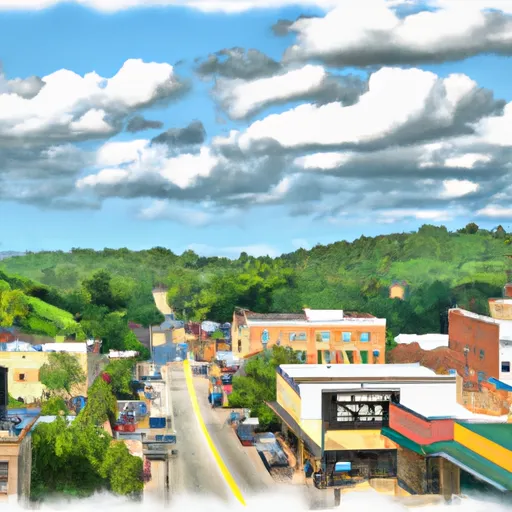-
 Snoflo Premium
Snoflo Premium
Get unlimited access to all our content
With no Ad interruptions! - Start Your Free Trial Login with existing account
Dexter
Eden Index
Climate
8.2
•
Recreation
2.2
•
Community
0.9
•
Safeguard
4.3/10

Dexter is a small town located in central Georgia, characterized by a humid subtropical climate with hot summers and mild winters. The town is situated on the Ocmulgee River, which is a significant hydrological feature in the area. The river is prone to flooding during heavy rainfall events, which has led to the development of floodplain management policies. Outdoor recreation opportunities in Dexter include fishing, boating, and kayaking on the river. There are also several parks in the town, including the Riverfront Park and the Ocmulgee River Walk, which provide scenic views and walking trails. The town's location also offers easy access to larger cities in the region, such as Macon and Atlanta.
What is the Eden Index?
The Snoflo Eden Index serves as a comprehensive rating system for regions, evaluating their desirability through a holistic assessment of climate health, outdoor recreation opportunities, and natural disaster risk, acknowledging the profound impact of these factors on livability and well-being.
Climate Health Indicator (CHI): 8.2
Dexter receives approximately
1166mm of rain per year,
with humidity levels near 84%
and air temperatures averaging around
19°C.
Dexter has a plant hardyness factor of
8, meaning
plants and agriculture in this region tend to thrive here all year round.
By considering the ideal temperature range, reliable water supplies, clean air, and stable seasonal rain or snowpacks, the Climate Health Indicator (CHI) underscores the significance of a healthy climate as the foundation for quality living.
A healthy climate is paramount for ensuring a high quality of life and livability in a region, fostering both physical well-being and environmental harmony. This can be characterized by ideal temperatures, reliable access to water supplies, clean air, and consistent seasonal rain or snowpacks.
Weather Forecast
Streamflow Conditions
Altamaha
Area Rivers
Altamaha
Snowpack Depths
Altamaha
Reservoir Storage Capacity
Altamaha
Groundwater Levels
Recreational Opportunity Index (ROI): 2.2
The Recreational Opportunity Index (ROI) recognizes the value of outdoor recreational options, such as parks, hiking trails, camping sites, and fishing spots, while acknowledging that climate plays a pivotal role in ensuring the comfort and consistency of these experiences.
Access to outdoor recreational opportunities, encompassing activities such as parks, hiking, camping, and fishing, is crucial for overall well-being, and the climate plays a pivotal role in enabling and enhancing these experiences, ensuring that individuals can engage in nature-based activities comfortably and consistently.
Camping Areas
| Campground | Campsites | Reservations | Toilets | Showers | Elevation |
|---|---|---|---|---|---|
| Oconee Springs County Park | None | 452 ft | |||
| Parks Ferry | 85 | 582 ft | |||
| Little Ocmulgee State Park | None | 202 ft | |||
| Paulk City Park | 25 | 335 ft | |||
| Ben Hill Landing County Park | None | 161 ft | |||
| Grassy Pond Military | None | 171 ft | |||
| Old Salem | 120 | 550 ft | |||
| Lawrence Shoals | 63 | 487 ft | |||
| A.H. Stephens State Park | None | 618 ft |
Nearby Ski Areas
Catastrophe Safeguard Index (CSI):
The Catastrophe Safeguard Index (CSI) recognizes that natural disaster risk, encompassing floods, fires, hurricanes, and tornadoes, can drastically affect safety and the overall appeal of an area.
The level of natural disaster risk in a region significantly affects safety and the overall livability, with climate change amplifying these risks by potentially increasing the frequency and intensity of events like floods, fires, hurricanes, and tornadoes, thereby posing substantial challenges to community resilience and well-being.
Community Resilience Indicator (CRI): 0.9
The Community Resilience Indicator (CRI) recognizes that education, healthcare, and socioeconomics are crucial to the well-being of a region. The CRI acknowledges the profound impact of these elements on residents' overall quality of life. By evaluating educational resources, healthcare accessibility, and economic inclusivity, the index captures the essential aspects that contribute to a thriving community, fostering resident satisfaction, equity, and social cohesion.

